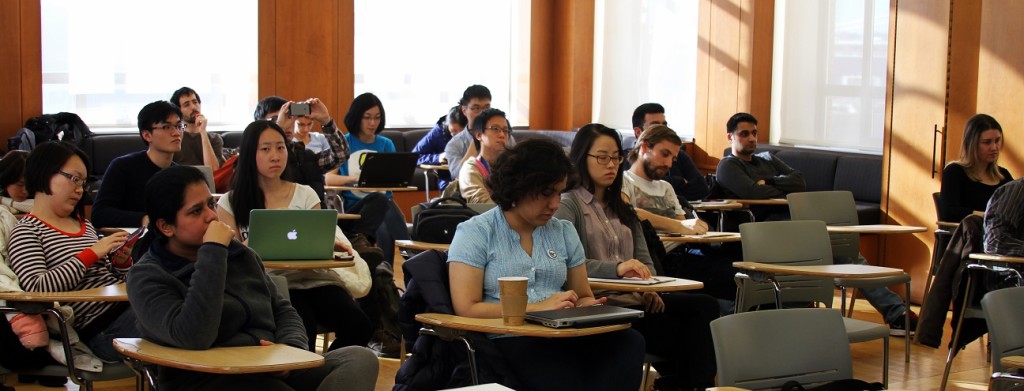International graduate workers have been busy this semester!
During our February town hall international graduate workers from across departments came together and discussed our experiences as international students at Columbia. From this discussion we decided to start meeting weekly to address the issues and concerns many of us share.
In March, we organized a workshop on visa issues and a taxes Q&A to supplement the presentations of the International Students and Scholars Office (ISSO) and provide more specific expert answers to complicated questions. An experienced immigration lawyer fielded questions about visas, internships, and post-graduation plans; and certified public accountants addressed our more complicated tax quandaries.
Check out photos from the workshops here.
One of our greatest successes of the semester was securing more summer research funding for international students who are excluded from major grants because they are not U.S. citizens or residents. Working with the Graduate Student Advisory Council and mobilizing the large network of graduate students that the union has brought together, we delivered a petition with nearly 500 signatures to GSAS Dean Carlos Alonso, enumerating the exclusionary grants and asking GSAS to create more funding opportunities for international students in the interest of a more inclusive university.
As Dean Alonso announced through an e-mail on Wednesday:
The Graduate School received some weeks ago a document signed by a significant number of GSAS graduate students that described the grant opportunities for summer language and area training to which they could not apply given their non-US-citizen status.
To address this concern, GSAS is announcing a new funding opportunity intended to support international doctoral students who need to study a foreign language abroad during the summer. International students in the humanities and social sciences at GSAS who are NOT permanent residents are eligible to apply for these funds. GSAS will endow 15 summer fellowships with a maximum award of $3,000.
This is just a start and to continue this fruitful organizing work among international graduate workers, we have created a survey to begin a more comprehensive discussion about the conditions that we face as workers across campus. Please look for it in your e-mail inboxes soon. If you are an international student, please take a moment to share your experiences and pass the link along.
As we press for formal recognition of the union through the National Labor Relations Board, grad workers—including the international students who make up more than 40% of the graduate student body—are also organizing to make Columbia a more democratic university.

